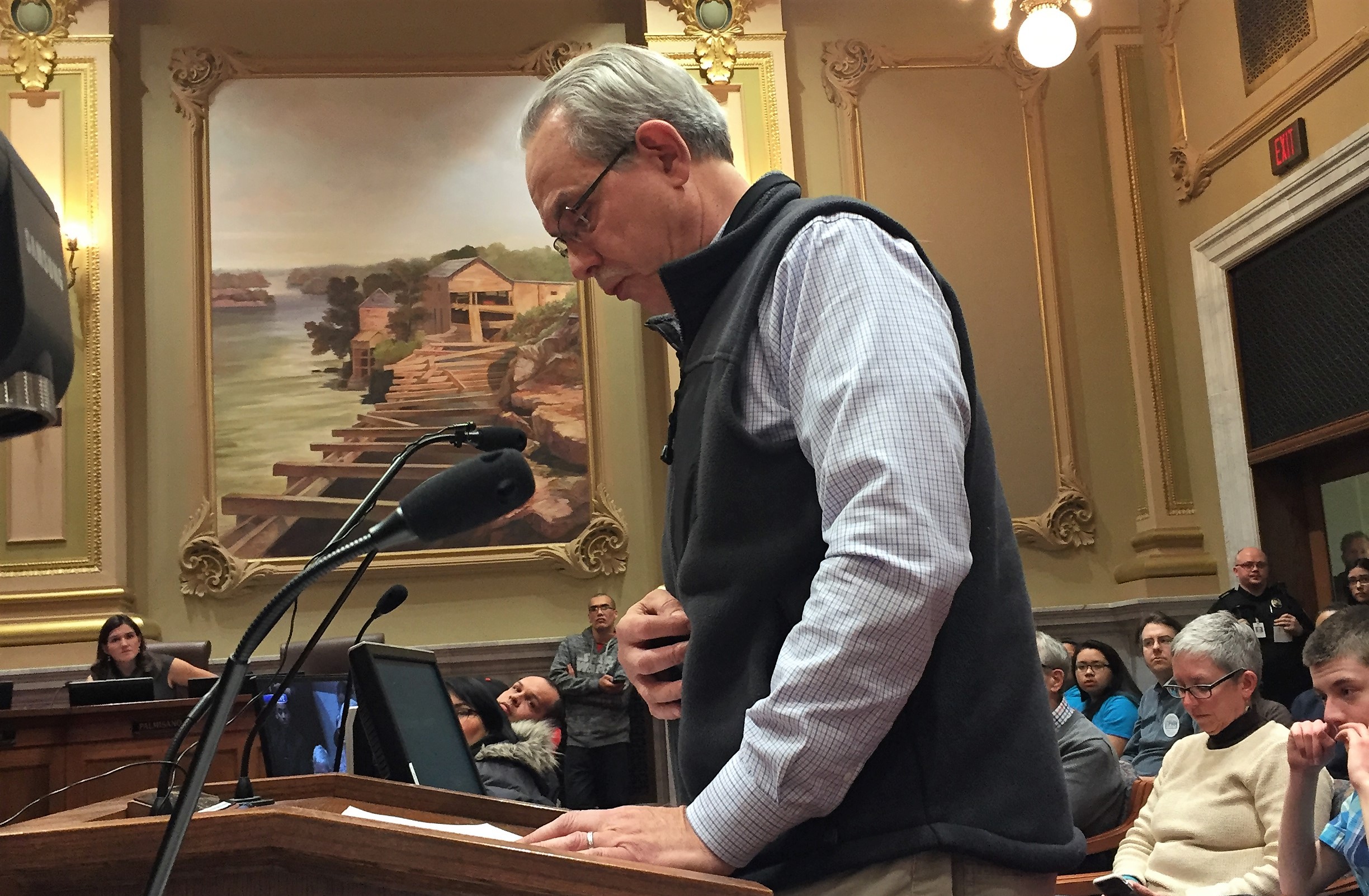As members of the Minneapolis City Council consider the proposed 2018 City of Minneapolis budget, the Minneapolis Public Housing Authority submitted the following comments in writing. MPHA Executive Director Greg Russ delivered a condensed version in person to the council at the November 29, 2017 public hearing.
At this time of greatly diminished federal support, the Minneapolis Public Housing Authority (MPHA) welcomes items in the city budget that are directly or potentially available to help us safely house many of the city’s most vulnerable residents. MPHA provides homes for thousands of families, seniors, and the disabled who are extremely low-income, for whom even other affordable housing programs in the city are out of reach. Our highrise households have an average income of $12,000 a year; households in our family housing make around $26,000.
The 2018 city budget, as proposed, rightly embraces affordable housing as a priority. MPHA believes that before the budget can be passed by the City Council, it must put even more funding toward addressing the city’s affordable housing crisis, including support for MPHA’s crucial role as a provider of quality, deeply subsidized homes.
Increased Security for MPHA Residences: The one-time proposal of $125,000 for this purpose is welcome, given that MPHA residents cite the security of their homes as their top concern. However, MPHA strongly requests the City Council increase this amount to $500,000 to truly make the difference city officials intend. Before disappearing in 2010, the city’s tax levy for public housing provided around $1.2 million annually for security. MPHA has since had to borrow from other critical needs to make up part of this difference, while sustaining cuts to security that residents feel keenly to this day. The federal government does not directly fund security, and the Public Housing Operating Subsidy that would include these needs has been severely underfunded by Congress for years. The proposed $125,000 represents just six percent of MPHA’s $2 million security budget. $500,000, however, would augment this budget by 25 percent, bringing real change to the lives of public housing residents.
Family Housing Initiative: MPHA greatly appreciates the proposed $1 million renewal of this funding, and looks forward to extending our collaboration with the city to create more deeply affordable family homes under this effort. In particular, we anticipate approaching the city in 2018 with one or more projects that apply a project-based subsidy model. Even at its current scale of $1 million, we believe that demonstrating concrete successes—such as the Minnehaha Townhomes, funded previously under this initiative, and steadily moving forward—will pave the way for longer-term, large-scale efforts at preserving and expanding MPHA housing.
Affordable Housing Trust Fund (AHTF): MPHA supports funding for a spectrum of affordable rental housing. The proposed $6.5 million for the Minneapolis AHTF is a strong start, but the Council should increase this funding considerably in light of the stark gap between need and available supply for low-income households. MPHA occupies a crucial position along this housing spectrum. Accordingly, MPHA asks city officials to support language in the AHTF Request-for-Proposals in 2018 that will allow the AHTF to consider targeted proposals from the housing authority that meet the goals we share with the city.
Housing Preservation Strategy: With waiting lists totaling more than 15,000 people, MPHA applauds any investment that prevents the erosion of naturally occurring affordable housing (NOAH). Opportunities could arise, as they have in other major cities, in which the housing authority could play a unique role in supporting such an effort. In that event, MPHA would appreciate the necessary changes the Council might need to make to the language governing this initiative to position MPHA to play that role.
Beyond the above proposals put forth in the proposed budget, MPHA urges the City Council and incoming mayor to move forward in 2018 to restore the Minneapolis Public Housing Authority Special Levy. The tax levy could provide as much as $8 million a year to MPHA at a modest cost to property owners (with the levy at its maximum amount, approximately $37 per year on a home worth $225,000). We believe the citizens of Minneapolis would find this a reasonable measure to address this urgent community need.
Thank you for considering MPHA’s comments. We are grateful to the mayor and City Council for your commitment to addressing the housing needs of our low-income residents, and we look forward to engaging with you to meet this challenge in the year ahead.






